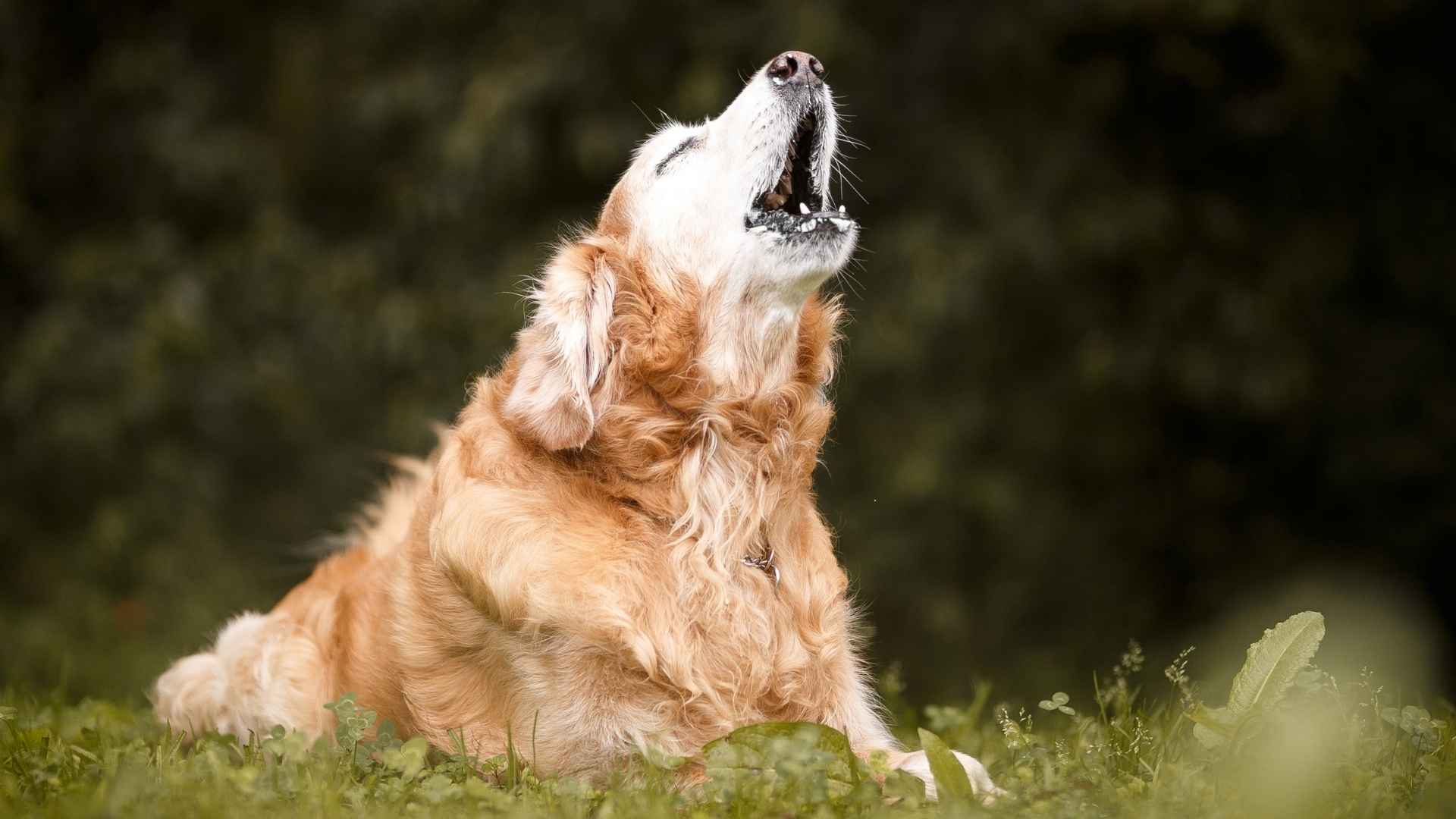If you’ve ever lived with a dog that can fill a room with its booming bark, you know how loud some breeds can get. In fact, the title of the Loudest Dog Breed often sparks lively debates among pet parents and dog lovers.
Which breed holds the world record for the most powerful bark? What dog breed is the most vocal or the noisiest? And what about those small breeds with surprisingly big barks?
This article dives deep into these questions, highlighting some of the loudest and most vocal dog breeds known for their distinctive barks, howls, and yaps.
Loudest Dog Breeds
Dogs bark for many reasons, such as to express excitement, alert owners to potential dangers, or communicate with other dogs over long distances. Some breeds have been originally bred to control livestock or hunt small game, which often comes with a loud and distinctive bark. Others have highly vocal temperaments because of their confident personalities and strong bonds with their humans.
So, let’s take a look at some of the loudest dog breeds in the canine world!
1. Beagles

Beagles may be small, but their loud, baying bark easily ranks them among the loudest dog breeds. According to the American Society for the Prevention of Cruelty to Animals (ASPCA), Beagles have been used to hunt hares and rabbits for more than 500 years. They have one of the most powerful noses, which helps them track their prey accurately.
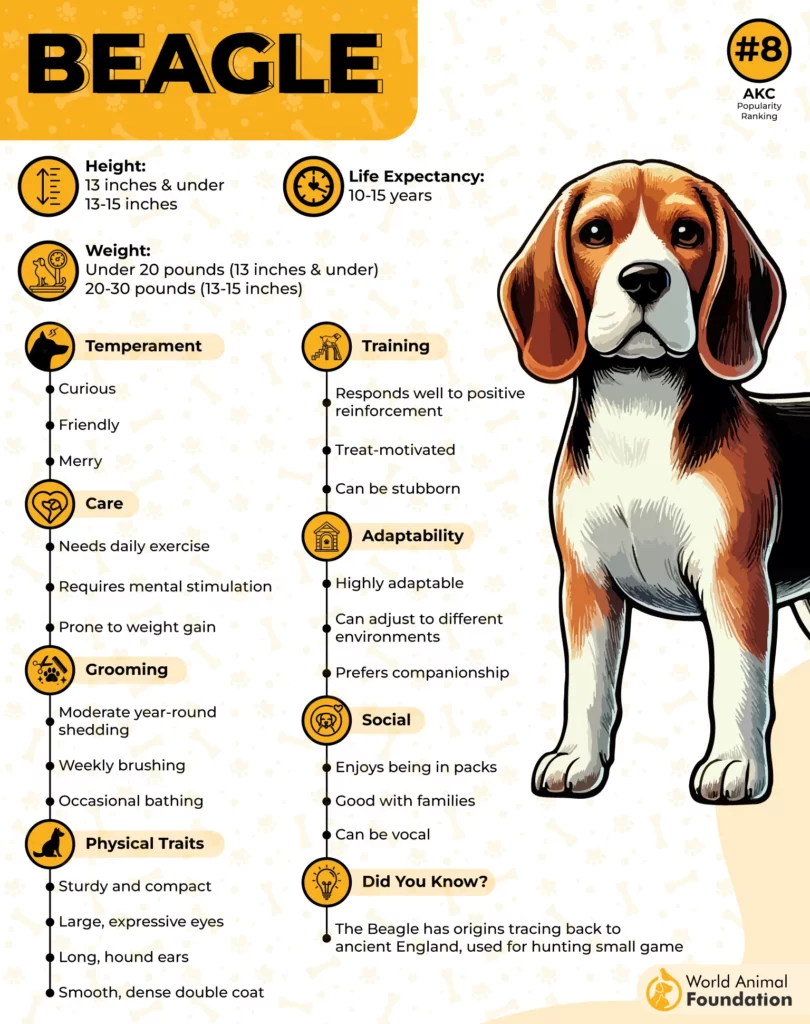
Also, they used their distinctive howls to communicate with hunters and fellow pack members. This trait remains deeply ingrained, making them highly vocal dogs even today.
Their bark is resonant and far-reaching, often triggered by excitement, boredom, or environmental sounds like sirens. Beagles are known for excessive barking if left alone, something many pet parents find challenging in quiet neighborhoods.
2. Chihuahuas

Don’t let their size fool you! Chihuahuas are one of the loudest dog breeds relative to their size. This breed uses its sharp, high-pitched bark to communicate everything from excitement to perceived threats. Despite weighing just a few pounds, Chihuahuas have an intimidating bark that echoes far beyond what you’d expect from such a compact body.
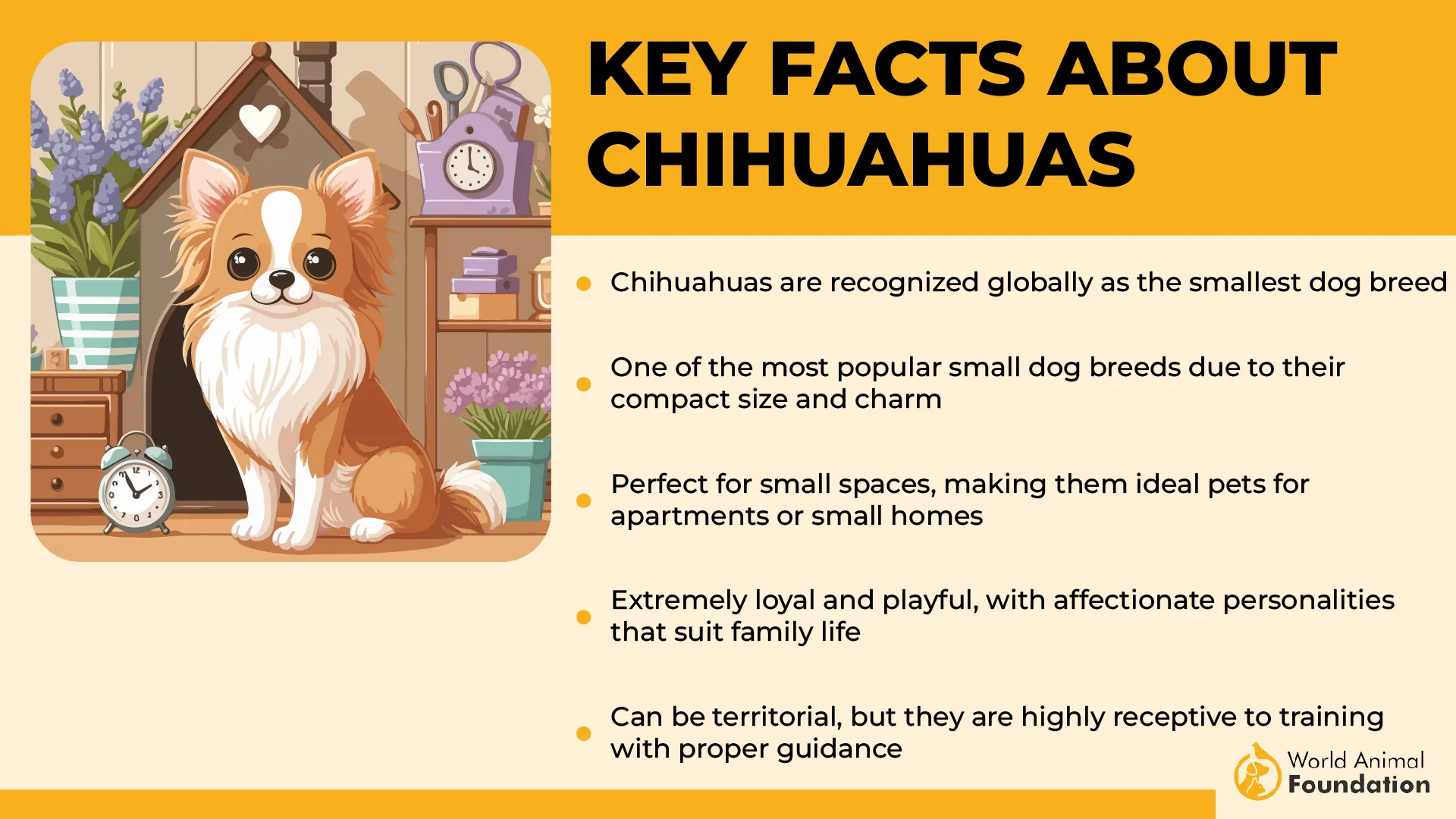
Their vocal nature is driven by loyalty, territorial instincts, and excess energy. The AKC even labels them as “very vocal,” noting their tendency to bark when bored, anxious, or overly stimulated. These dogs bark frequently and sometimes for no clear reason at all. Pet parents should ensure they get daily exercise and stimulation to reduce excessive barking.
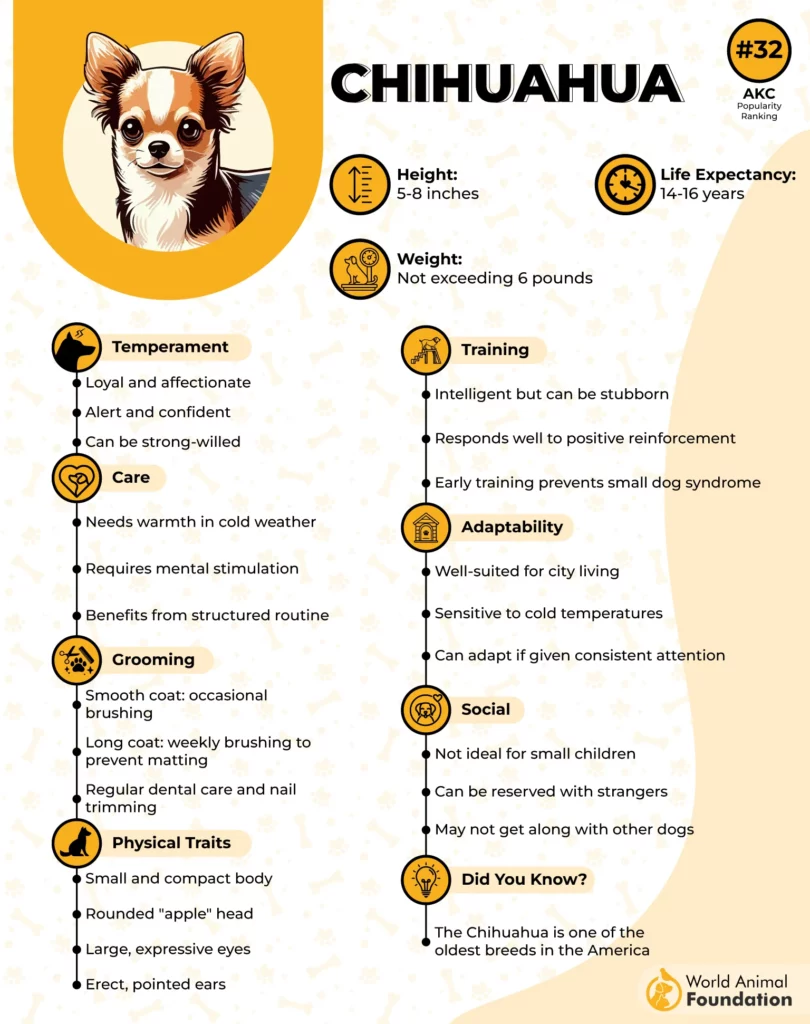
They’re especially reactive in unfamiliar environments and may vocalize in response to anything they view as a potential threat, even if it’s just a passing shadow or sound. Their bark may be yappy, but it’s rooted in an alert, protective temperament.
3. Siberian Husky

The Siberian Husky stands out for its striking appearance and also for its vocal nature. While they may not bark as frequently as some breeds, Huskies are renowned for their wide range of vocalizations, including howls, whines, and “talking” sounds. This expressive behaviour harks back to their origins as sled dogs, where communication over vast Arctic distances was essential.
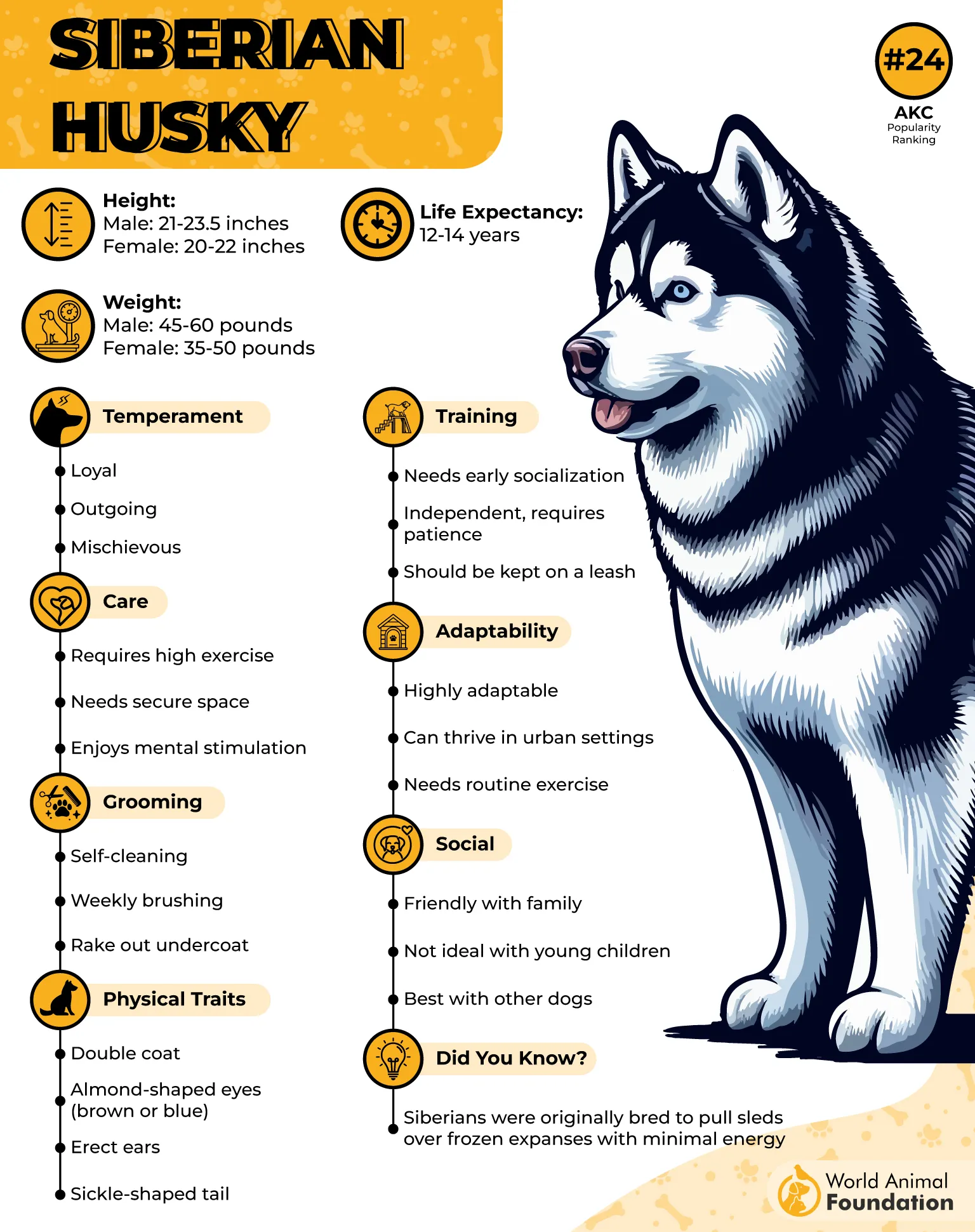
According to PetMD, Siberian Huskies are “perhaps best known for their talkative personalities and endless energy.” Their howls can be heard over long distances, and they often “sing” along with sirens or music. This showcases their booming bark and resonant vocalizations. This breed’s high energy and intelligence mean they thrive in environments where they can engage both physically and mentally.
However, their vocal tendencies can pose challenges in close-knit communities or apartments. Without adequate exercise and stimulation, Huskies may resort to excessive barking or howling to express boredom or seek attention.
4. Golden Retriever
Golden Retrievers are famously gentle, loyal companions, but when they do bark, it’s impossible to ignore. While originally bred as gundogs and trained not to bark during hunting to avoid startling game, this breed still has one of the most booming barks in the canine world.
In fact, an Australian Golden Retriever named Charlie holds the Guinness World Record for the loudest bark ever recorded at 113.1 decibels, louder than a jackhammer. Though generally quiet and composed, Golden Retrievers are known to bark with force when alerting to unfamiliar sights or protecting loved ones.
Their powerful bark is used sparingly, but effectively, making them capable watchdogs as well as affectionate pets. This unique combination of composure and vocal strength earns them a spot among the loudest dog breeds.
5. German Shepherd
Few dogs command respect like the German Shepherd, a breed known for its deep, intimidating bark and sharp intelligence. This versatile working dog developed a resonant bark that could cut through wind and distance to alert to danger or control large flocks.
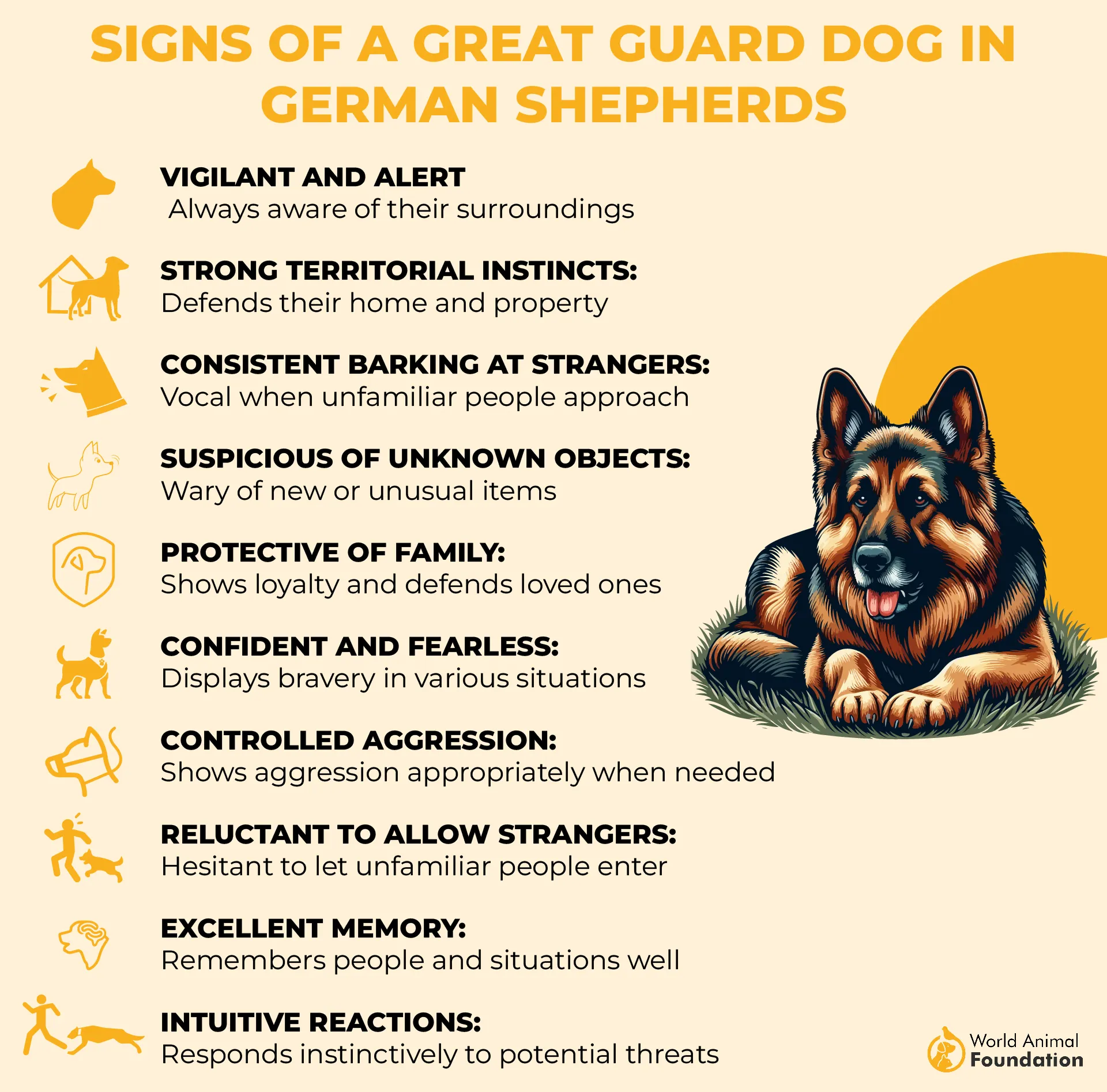
Today, German Shepherds are prized police and military dogs, and their loud, commanding bark plays a crucial role in deterrence and communication. It’s not just volume; the bark’s tone and force send a clear message. In fact, the second-loudest dog bark ever recorded belongs to a German Shepherd, earning them a reputation for having the scariest bark in the dog world.
Their bark isn’t just a show. It reflects their protective nature, sharp instincts, and readiness to defend. Without proper stimulation, however, they may vocalize out of frustration, making them better suited to experienced owners who can meet their physical and mental needs.
6. Rottweiler
There’s nothing timid about a Rottweiler, and you can hear it in every bark. Rottweilers have a voice as powerful as their presence, large, composed, and fiercely devoted to their families. That deep, booming bark isn’t just noise; it’s a clear message that this dog is watching and it means business.

Long ago, Rottweilers were bred to move herds and protect them from predators. Barking was part of the job, loud enough to cut through chaos, sharp enough to command attention. That working instinct hasn’t faded. Today, they carry the same voca confidence into modern homes, using their bark not for show but for security.
They’re not constant barkers. In fact, a Rottweiler may stay completely silent until it senses something out of place. But when that warning bark does erupt, it’s unmistakable. It stops people. It turns heads. And it tells you exactly why this breed remains one of the most respected guard dogs in the world.
7. Pomeranian
Lively, alert, and fiercely expressive, the Pomeranian is a perfect example of how size doesn’t limit volume. These tiny dogs are famously vocal. They often surprise first-time owners with their ability to fill a room and even a neighborhood with yappy, high-pitched barks. Their voices range from sharp yips to persistent growls, depending on the situation.
But barking isn’t just noise for a Pomeranian; it’s communication. They bark for attention, to alert you to the slightest sound, or when they feel anxious, which is common in small breeds that are easily overstimulated. These dogs aren’t just vocal for the sake of it; they’re incredibly tuned into their environment and react quickly to even minor changes.
Their watchdog instincts kick in fast. Whether it’s a knock on the door, a bird outside the window, or a distant siren, you’ll hear about it loudly. While training can help reduce excessive barking, some level of chatter is part of the Pomeranian’s personality.
Conclusion
From the sharp yaps of a Chihuahua to the deep, commanding bark of a German Shepherd, one thing is clear: volume has nothing to do with size. Some dogs were simply built to be heard. Whether they were bred to guard livestock, work in search and rescue, or just demand your attention from the sofa, these breeds don’t hold back when they have something to say.
For pet parents, living with a loud dog means learning the difference between helpful alerts and endless noise and finding ways to manage both. Barking isn’t just a sound; it’s communication, instinct, and emotion. And while it can be overwhelming at times, it’s also part of what makes these dogs so full of personality.
If you’re thinking about bringing one of these vocal breeds into your home, know that you’re not just choosing a dog, you’re choosing a conversation partner who always has something to add. And in a world that’s often too quiet, maybe that’s not such a bad thing.


